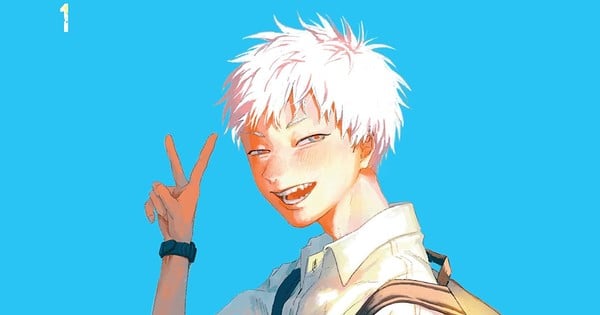Curated From www.animenewsnetwork.com Check Them Out For More Content.
Recently, I’ve seen several social media posts playing with the well-worn horror concept of “came back different.” The basic form of the idea is that someone goes missing, dies, or otherwise becomes inaccessible. They return, and everyone rejoices, but gradually it becomes clear that there’s something, well, different about them. Perhaps they’re a fake, or the experience has altered them; either way, the relief of recovery turns into horror and confusion, playing on the fear of the familiar turning out to be the “other.” The Summer Hikaru Died takes that basic idea and puts a spin on it: what if they came back different, and you’ve figured it out, but choose to let the fake continue on like nothing has happened? What if even the facsimile of your loved one is better than not having them at all?
That’s the situation YOSHIKI finds himself in within the first few pages. He realizes his longtime friend Hikaru is not, in fact, Hikaru at all. In his own words, he’s a “ghoulie” who came upon Hikaru dying in the forest and took on his form. He has all of his host’s memories and seems to have also taken on his personality. YOSHIKI quickly accepts his friend’s imitator because he’s similar enough. However, even if YOSHIKI treats him the same as if he were Hikaru, they can’t stop others from finding out there’s a monster among them.
The story is clever in how it mixes YOSHIKI‘s unorthodox response with traditional horror signifiers. The typically chill neighborhood cat becomes frightened and defensive when not-Hikaru reaches out to pet him, and an elderly woman calls him out for what he is. This introduces a different kind of psychological horror than the norm; in accepting this creature, is YOSHIKI bringing something into the village that will cause them harm, whether via active malice or the very fact of his presence? YOSHIKI wavers constantly between being unsettled and comforted by pseudo-Hikaru, as portrayed by the uncertainty in his gaze as he looks upon the thing in the body of his old friend.
There’s another layer to YOSHIKI‘s feelings of tumult: the feelings he harbored for Hikaru, and this creature’s willingness to answer them when the true version seemed to be clueless. It doesn’t feel quite right to call The Summer Hikaru Died a boys’ love series, especially considering it’s thus far been kept to subtext, albeit just barely shy of text, but there is little, if any, doubt about YOSHIKI‘s feelings of attraction. The portrayal runs from subtle, such as YOSHIKI‘s defensive reaction every time Hikaru brought up girls, to what amounts to a big Neon Sign announcing, “THIS IS A METAPHOR FOR SEXUAL EXPERIMENTATION.” The centering of YOSHIKI‘s own feelings positions him right alongside the unuki as being “other,” creating a kinship between them. This being the subject of YOSHIKI‘s internal struggle, rather than stemming from the external threat, sidesteps the common issue of queerness being linked to monstrousness in horror, even in narratives that attempt to be sympathetic, and instead strengthens the metaphor that lies at the heart of this story.
YOSHIKI himself doesn’t bring much as a character beyond acting as a vessel for the audience’s feelings of quiet dread and his position in the central metaphor. The unuki imitating Hikaru, on the other hand, drew me in. Hikaru was, after all, the more outgoing and dynamic of the central pair, and the creature that has taken on his body and memories has taken on much of his personality as well: outgoing, goofy, cheerful, and well-suited to his name, meaning “light.” His otherness isn’t just a source of dread, but also vulnerability. He weeps at the taste of food and a drama movie’s story because even if he has memories of Hikaru doing these things, this is his first time truly experiencing things for himself. He’s desperately lonely, seeking YOSHIKI‘s love.
I feel like I’ve spent most of the review simply describing the story and character of The Summer Hikaru Died, rather than stating my own opinion, but that’s because I believe the quality of the story is self-evident from what I’ve talked about. There’s an elegance to how it interacts with the conventions of both the horror and BL genres, finding their common elements and using them to tie everything together into a cohesive story where longing, loneliness, and vulnerability feed into the sense of creeping dread. We know from the very start that something is wrong, making the question, “Do we live with this and how?” rather than doubting our perception of reality or the events of the story, or being frightened by Hikaru’s alien nature.
Artist Mokumokuren utilizes similar artistic techniques to other famous horror manga artists such as Junji Ito, but with her own style as well. The art is done mostly in pen-and-ink style, with shading done mostly through cross-hatching, making the occasional splash of solid black shadow all the more striking. For the most part, the art is a game of juxtaposition: the blinding sunshine of summer creates deep shadows; the unuki’s grin as Hikaru and his light, curly hair as opposed to YOSHIKI‘s perpetually tired expression, half-covered with his straight-dark bangs; how strange phenomena are depicted head-on, but familiar rooms become distorted with a fish-eye lens; even the onomatopoeia become the source of contrast, with blocky English text right next to more standard Japanese representations. Through the art, the strange becomes comfortable and intimate, and the normal becomes alien and unsettling. All that can shatter in an instant, however, when you get too close, and the intimate strange bursts into unpredictable psychedelia, representing how unpredictable and frightening it can be even when you try to accept it.
The Summer Hikaru Died is not the only horror series that emphasizes discomfort and defamiliarization over spooks and gore, not by a long shot. Nor is it a rarity in its queer themes. However, its exploration of the characters’ emotions and alienation through the lens of body theft stands to make it something special.

